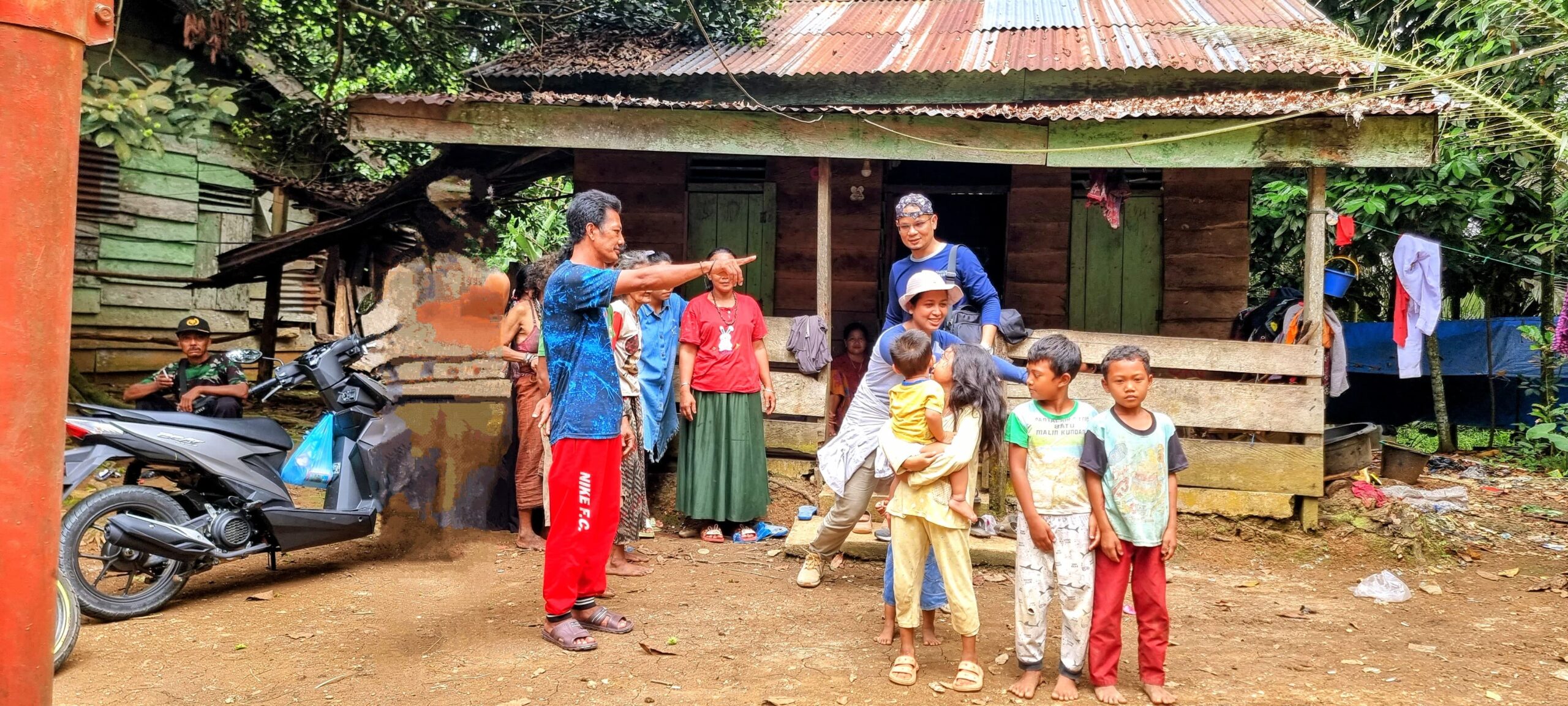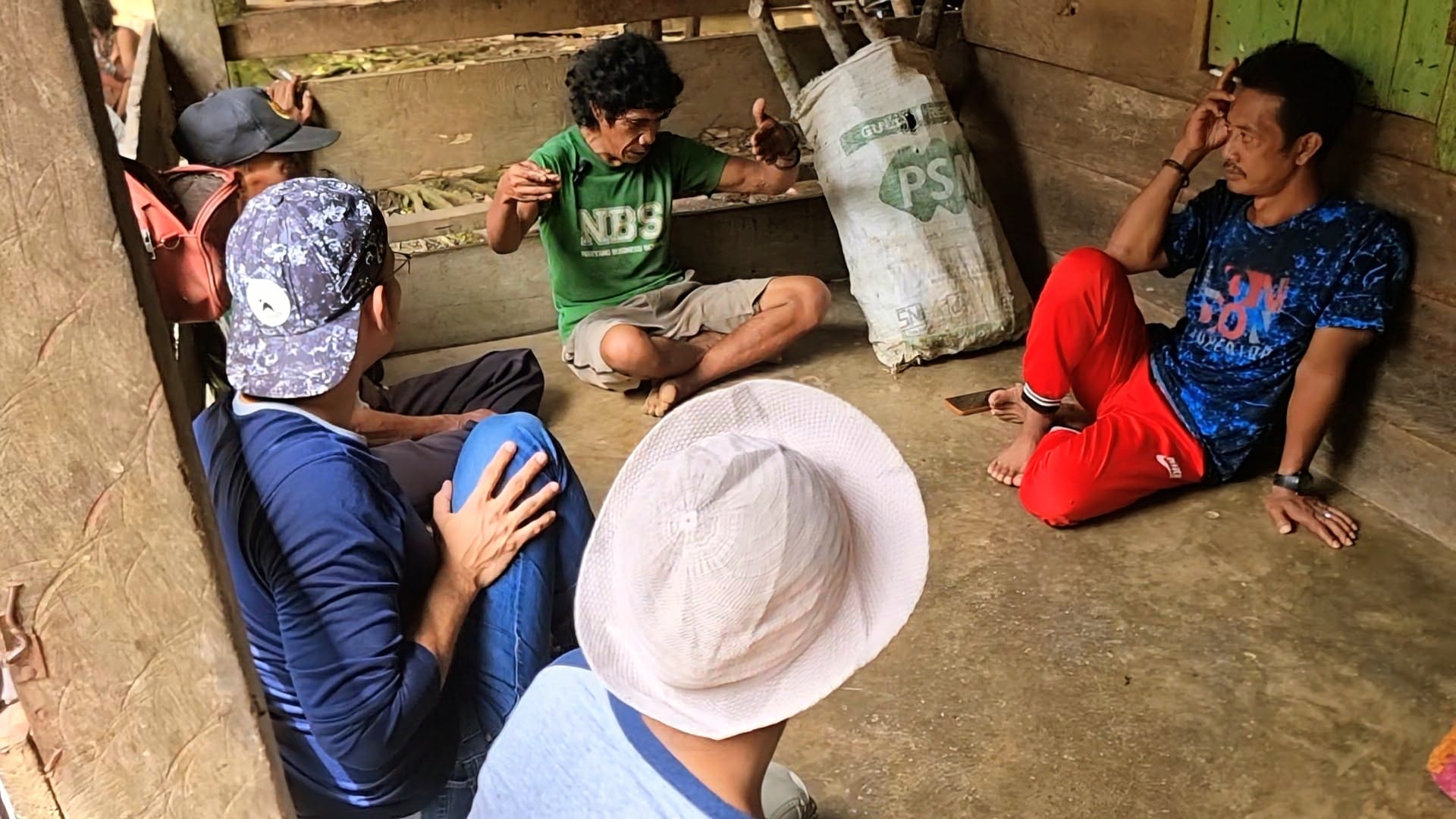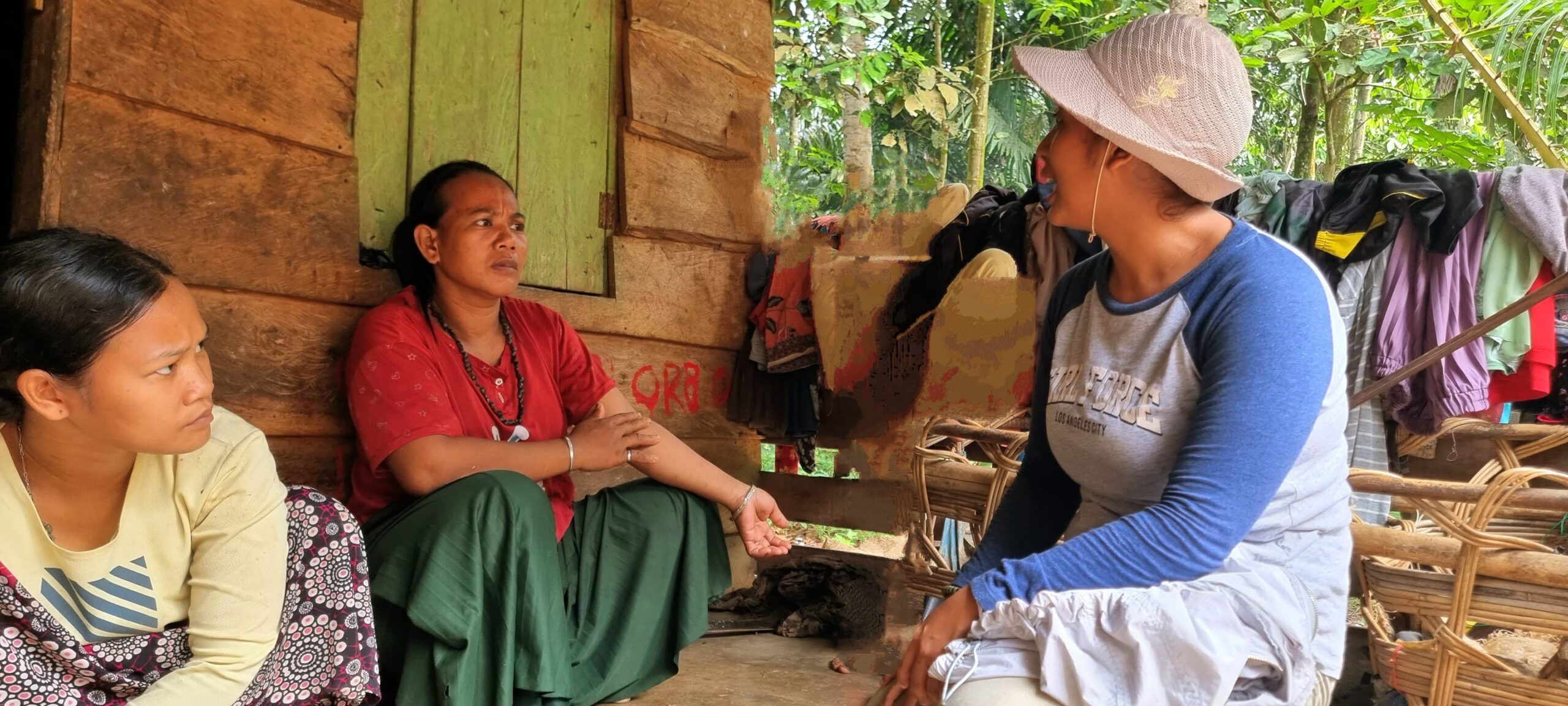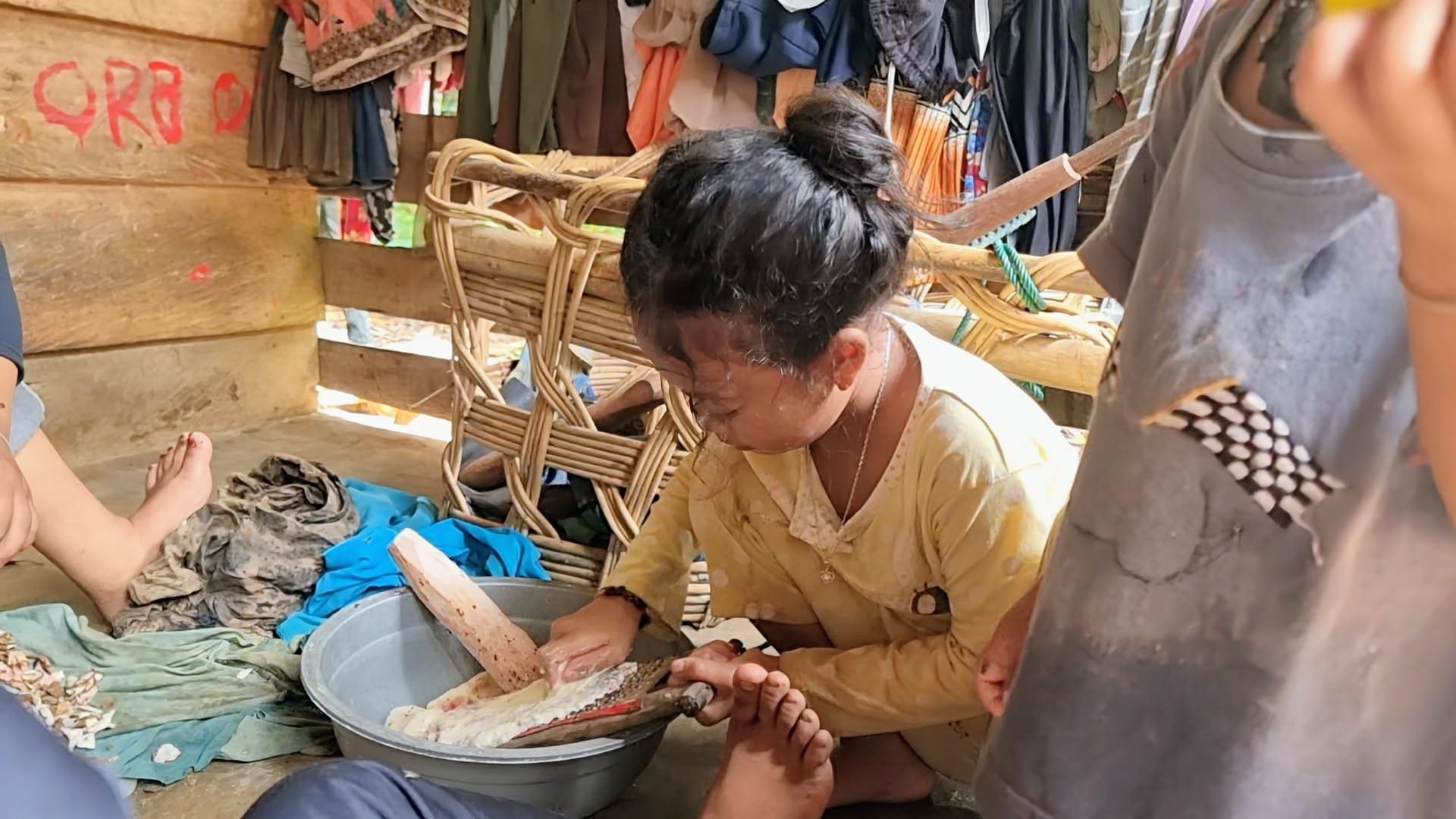
Deep in the palm fileds of Merangin District, Jambi, the Suku Anak Dalam have honed the art of food sustainability for generations. During our fieldwork from December 14 to 27, 2023, we had the rare opportunity to witness their remarkable ability to sustain themselves using indigenous knowledge passed down through time. Their approach to food isn’t just about survival—it’s about maintaining a balance between nature and community.
One of the most striking moments of our visit was sitting inside a traditional wooden hut, where an elder passionately explained the principles of foraging, hunting, and cultivating native crops. His animated storytelling wasn’t just about food; it was about harmony with the land. These lessons, shared orally from generation to generation, ensure that the community’s food system remains resilient and self-sufficient.

Unlike modern food systems, where individual ownership often prevails, the Suku Anak Dalam operate through a deeply communal approach. Food belongs to everyone, reinforcing sustainability through collective effort, shared knowledge, and equitable distribution. Women, elders, and children all play a role in food preparation and management, ensuring that no one goes hungry.

A striking example of sustainability in action was a young girl skillfully grating cassava—a staple food. At just ten years old, she already possessed valuable knowledge of food processing, ensuring that cassava is preserved through drying and fermentation. These techniques prevent waste, extend food availability, and fortify the community’s food security, especially during scarce seasons.

Image: A young girl carefully grates cassava, demonstrating an essential food preservation technique passed down through generations
One of the most fascinating aspects of the Suku Anak Dalam diet is their reliance on wild and naturally resilient crops. We observed their use of wild yam and cassava, foods that grow abundantly in the forest without the need for fertilizers or pesticides. These plants provide essential nutrients and are a testament to the community’s deep ecological knowledge. Their ability to thrive without external intervention makes them a powerful model for sustainable agriculture.
In a world increasingly challenged by food insecurity, climate change, and environmental degradation, the wisdom of the Suku Anak Dalam offers a blueprint for resilience. Their food system, built on nature’s rhythm, traditional wisdom, and communal values, stands as a powerful reminder that sustainability is more than just a concept—it’s a way of life.
As modern societies seek sustainable solutions, there’s much to learn from these indigenous communities. By respecting traditional knowledge and embracing eco-friendly food practices, we can move toward a future where food isn’t just consumed—it’s truly understood.
Fieldwork Location: Merangin District, Jambi
Research Period: December 14-27, 2023
Focus: Traditional food sustainability of the Suku Anak Dalam
